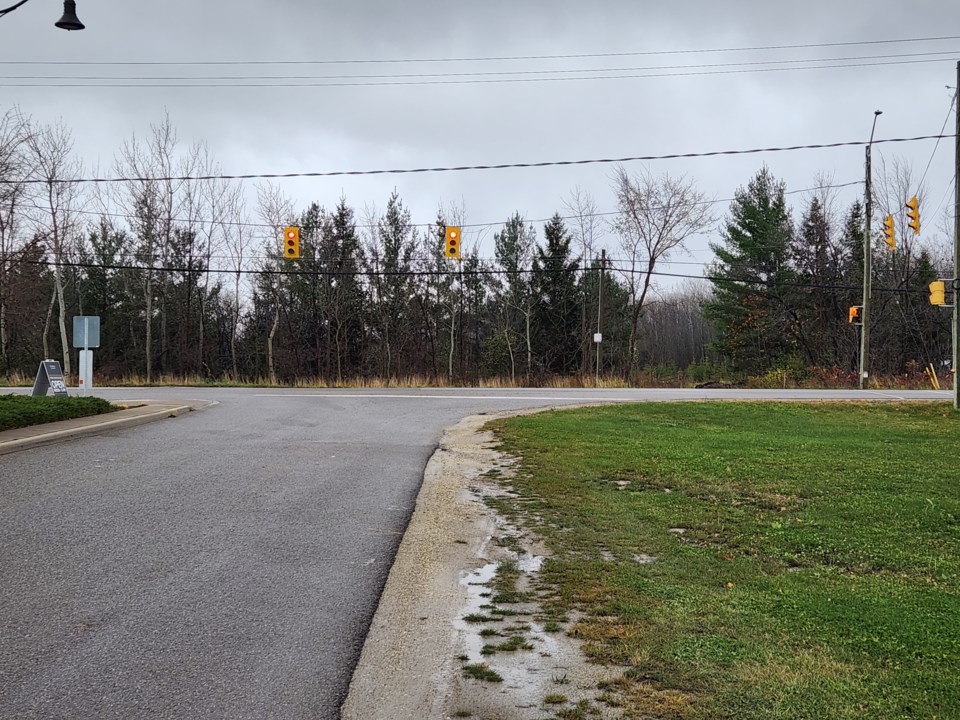The Blue Mountains council has rejected a developer’s request to pursue a minister’s zoning order (MZO) for a proposed rental housing development in the town.
At its committee of the whole meeting on Sept. 17, council rejected a staff recommendation to process an application for a purpose-built rental housing project near the Village at Blue as a request to the province for an MZO.
The staff recommendation was defeated in a 5-2 vote with only Mayor Andrea Matrosovs and Coun. Shawn McKinlay in favour of the move.
Council’s rejection of the request came after project proponent Paul Mondell made a presentation at the meeting about the proposal. It was the third time Mondell had spoken to council about the rental housing concept.
The MZO would have accelerated the planning process for the project from what staff estimated would take one to two years through the traditional planning process to four to six months. Under the staff proposal, the proponent and the town would essentially work together to bring the application for the rental housing project to the province for an MZO.
In his presentation, Mondell acknowledged there are negative connotations associated with MZOs. However, he said the process wasn’t meant to set aside the planning process.
“We aren’t short-circuiting anything. There is going to be a very long and detailed process,” he said.
In his earlier presentations to council, Mondell said the preliminary plan would be to construct multiple multi-storey buildings on a 24-acre property located at County Road 19 and Crosswinds Boulevard. The buildings would include up to 1,200 units of one-, two- and three-bedroom rental units.
These plans, however, Mondell said have changed. He said the scope of the project would be reduced as a significant portion of the property cannot be developed.
“Things are going to be refined in a significant way,” he said.
The proponents of the project are working on a number of technical studies and reports for the plan. Mondell said the proposal would have a “significant impact” on the “housing crisis” council declared recently.
“If there was ever a reason to do an MZO, it is for a project like this,” he said. “If not here, then where?”
There was also plenty of opposition to the MZO expressed at the meeting. Council received three letters from residents opposed to the concept and heard from multiple speakers, who also expressed opposition, during the public comments portion of the meeting.
In a presentation about the staff report, Shawn Postma - the town’s manager of community planning - said staff was not requesting that council approve an MZO, but rather was requesting that the project proceed along the MZO route. A full council decision on formally requesting an MZO would come down the line.
The report outlined the lengthy list of requirements and reports the application required before any request could be made to the province. The process requires a completed application, public notice and consultation and a decision by council. The proponents must also complete all the standard environmental, servicing and planning reports that would be required for any such development. In addition, future permissions may be required for site plans or subdivision agreements.
Postma also explained that the property is currently located in a future secondary plan area. Postma said, in general, the town has “no interest” in allowing large developments on lands set aside in secondary plan areas. Secondary plan areas require the town to complete a full planning study of the area to determine future servicing needs and requirements.
Postma said an MZO would allow the province to set aside the policies in the local and county official plan in order to deliver projects that the province considers priorities.
Postma said if council rejected the MZO path, then the developer had a couple of options to consider. They could pursue an MZO on their own with no support for the town. The proponent could also proceed with the traditional planning process, which would be problematic because the property is in a secondary plan area.
“It is difficult for planning staff to come to a recommendation to support (the project), based on the policies in the (official plan),” he said.
Members of council were reluctant to support the MZO aspect of the request.
“I’m not a fan of MZOs,” said Deputy Mayor Peter Bordignon, who wondered if the traditional planning process could be accelerated for this particular project.
Coun. Gail Ardiel said she would not support an MZO and said it would be “sidestepping” the planning process.
“It needs due process,” she said.
McKinlay said it made no sense for council to declare a “housing crisis” in August and then reject a request to speed up a housing project that would help solve the issue.
“We can’t one week declare a housing crisis and then the next week turn down the working relationship with a developer who wants to build exactly what we need,” he said.
Matrosovs noted that council was not being asked to approve the MZO, but rather the process to proceed with the application on that basis.
“I am after the answers. I want to hear more. I would like to see the complete application,” she said.
After defeating the request to follow the MZO process, council passed a subsequent resolution directing staff to process the application via the traditional planning process and to find efficiencies and expedited timelines for the project.


